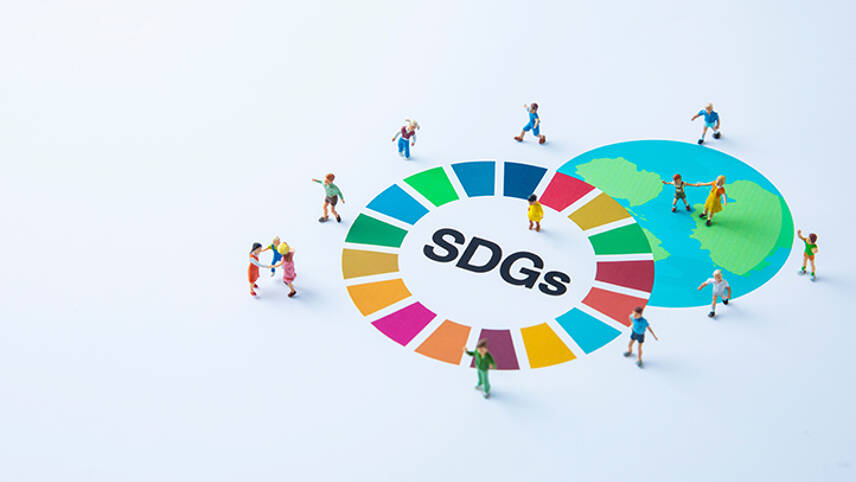Register for free and continue reading
Join our growing army of changemakers and get unlimited access to our premium content

In 2015, 193 countries adopted the 17 Sustainable Development Goals (SDGs) of the United Nations, designed to stamp out hunger, poverty and other gross inequalities. The necessary investment was estimated then at $1.4trn – $2.5trn a year.
But halfway to the 2030 deadline, we are way off course. Investments are not flowing fast enough, and at the necessary scale, to transform our climate, energy and food systems, eradicate poverty, and put our economies on a more sustainable and inclusive footing. We have also failed to curb global greenhouse gas emissions and, as a result, climate change is now undoing some of the progress we have made on the SDGs.
The challenge is both huge and urgent in developed, emerging and developing economies alike. We need millions of companies to become involved to achieve the SDGs and, in so doing, secure their future and ours.
A complex agenda
In July last year, a group of academics revised the maths for delivering the SDGs. Their report, Investment needs to achieve the SDGs: An Overview put the investments needed in clean energy and water resources at up to $1.9trn a year, while investments in curbing the effects of climate change were placed at close to $4trn a year.
The transformation of our energy and food systems, in particular, is hugely complex and dependent on the farmers, entrepreneurs and companies who supply our needs as consumers.
Governments can negotiate, legislate and regulate. They can offer subsidies to change behaviour. But ultimately, the more equal and sustainable world we are trying to achieve will depend on changes in the behaviour, choices and decisions taken by all members of society, companies and investors among them.
Private companies are key to achieving the SDGs
According to the International Monetary Fund, assets held in global investment portfolios worldwide exceed $65trn. By contrast, the finances of many governments are over-stretched in the wake of the Covid-19 pandemic and hyper inflation.
The United Nations Global Compact has published a study – The United Nations Global Compact-Accenture SDG Stocktake: Through the Eyes of the Private Sector – which provides valuable insights into the readiness of the private sector to fulfill the SDGs.
We found that mentions of SDGs in earnings calls rose seven-fold between 2015 and 2021, but then fell by 30%, reflecting a decrease in attention. Only half of business professionals (51%) now reckon the world is on course to achieve the SDGs by 2030.
Corporate efforts are undiminished: 81% of business leaders believe their business is doing enough to contribute to the SDGs. But looking more widely, only 48% believe the private sector as a whole is doing enough.
It’s clear that many corporate directors and managers have digested the growing body of evidence showing that companies with strong ethics tend to prosper and survive longer. They realise there is a bright future in providing solutions that solve energy and food crises.
These factors help explain why more than 18,000 companies around the world of every size have joined the United Nations Global Compact to codify their contribution to achieving the SDGs.
Driving change
UN Global Compact members have signed up to the Ten Principles guiding their corporate behaviour. These principles cover human rights, labour practices, the environment and the fight against corruption.
Many chief financial officers build upon this engagement by joining our CFO Coalition for the SDGs. Together the companies they help lead are capitalised at $1.7trn and have committed $500bn towards achieving SDG objectives. They’re also working on developing principles, frameworks and recommendations to enable them to integrate those objectives into their corporate finances, helping SDG investments to become mainstream.
But progress towards the SDGs has been slow at best, with many of the goals receding. Our report shows that while a quarter of firms are advancing economic growth, providing decent work and improving working conditions, private-sector investments remain inadequate to achieve climate goals.
That’s why, at the General Assembly High-Level Week 2023 in New York, we will be launching our Forward Faster initiative to accelerate private-sector action to achieve the SDGs. We are calling on companies everywhere to take measurable, credible, ambitious action to achieve selected targets by 2030.
Companies will be asked to commit to achieving equal gender representation across their companies and equal pay for equal work. They must commit to setting targets to work towards halving global emissions by 2030 and achieving net zero by 2050. Additionally, they will be asked to ensure that all employees earn a living wage, and work with suppliers and contractors to achieve the same for their staff. They will be pledged to ensure their – and our – water supplies are resilient. And they must align corporate investments as far as possible with SDG policies and report their achievements.
The crisis faced by humankind is too big for governments and individuals to overcome alone. We must now join hands with companies, everywhere, to save ourselves and our planet.
Sanda Ojiambo is chief executive and Executive Director of the UN Global Compact.



Please login or Register to leave a comment.